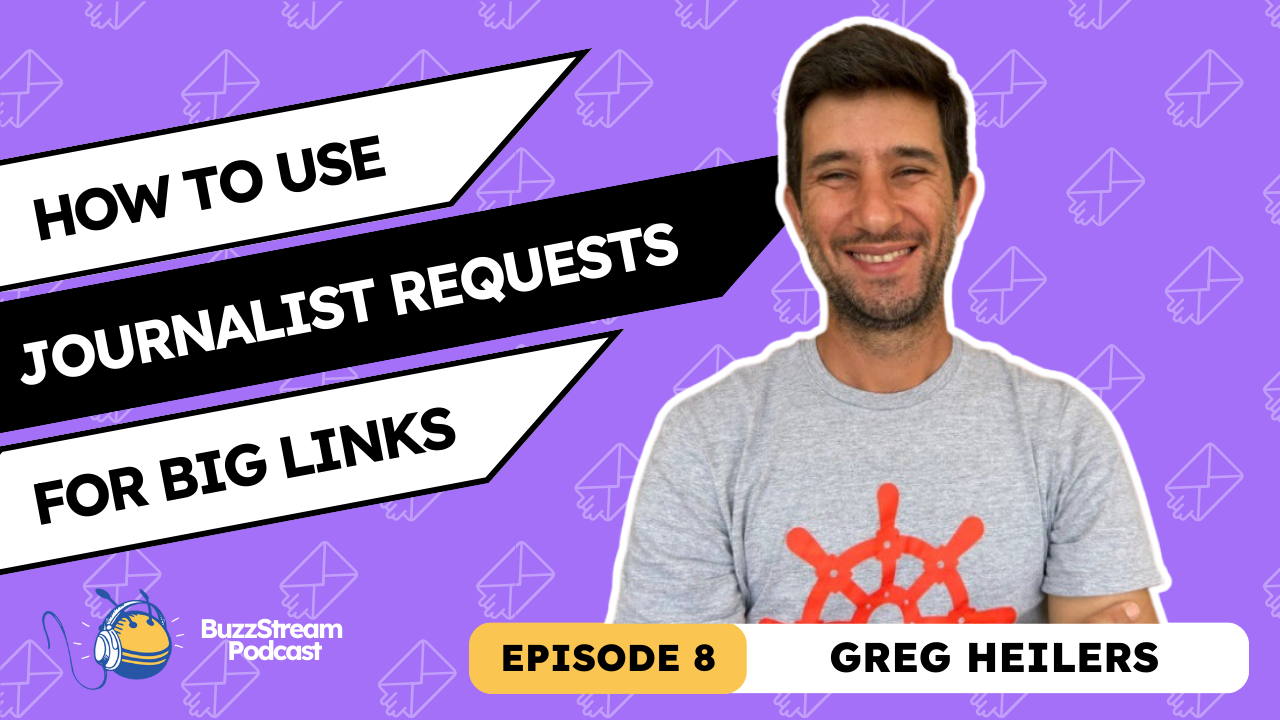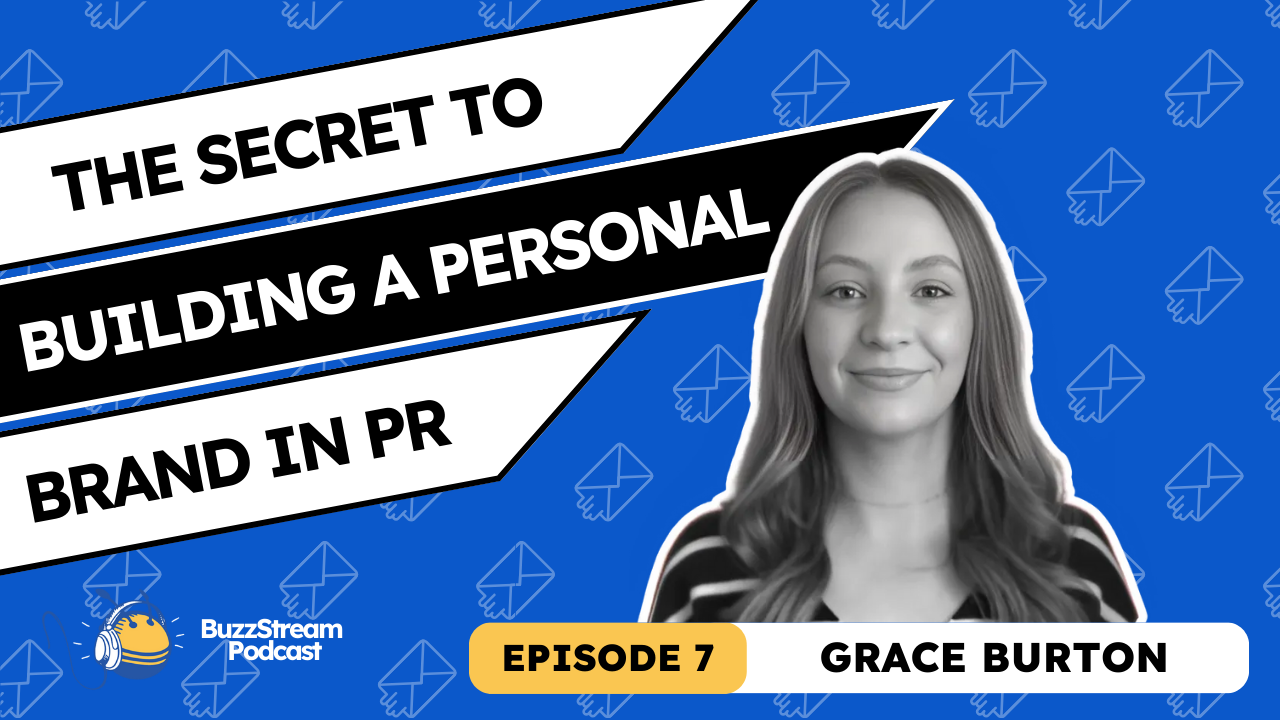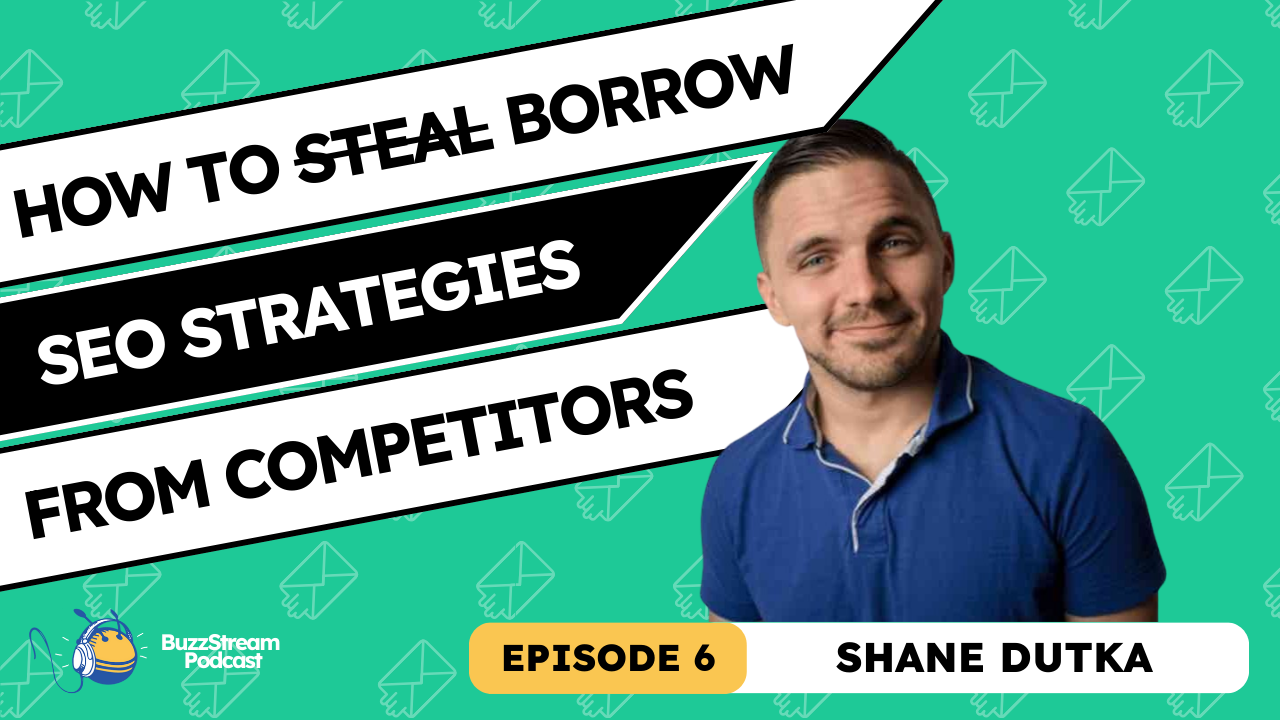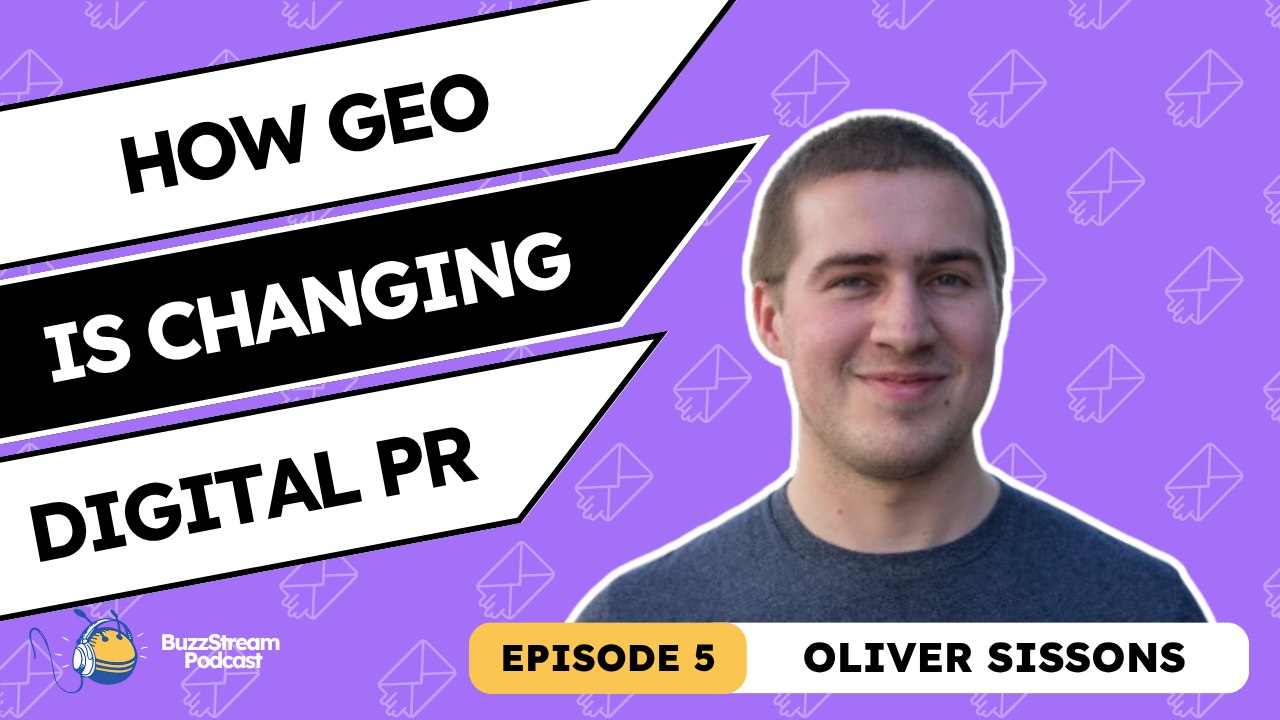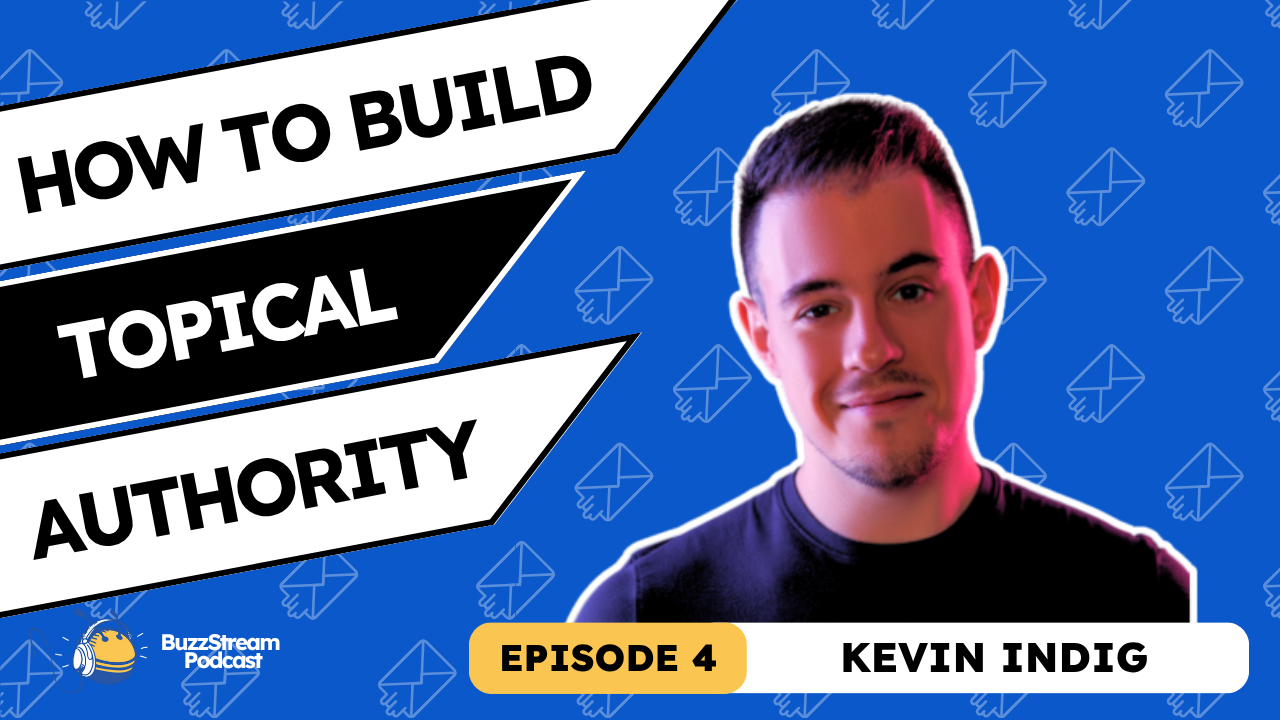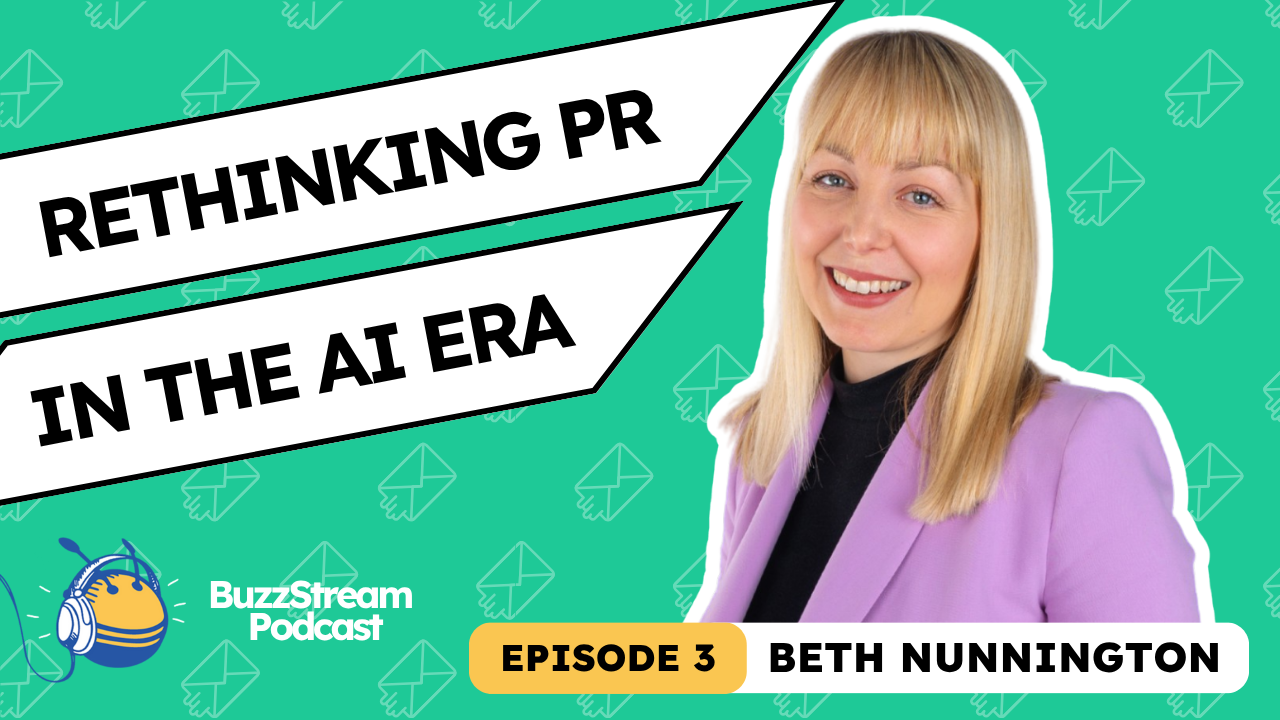Table of Contents
In 2020, I left my job at Siege Media and was on the hunt for something new. I had a few freelance clients, but we had a baby on the way, so I wasn’t sure if freelance was what I wanted to do.
After mindlessly scrolling through LinkedIn job boards and applying to jobs I never heard from again, I saw some promising jobs in an SEO newsletter called #SEOForLunch by Nick LeRoy.
I started applying and immediately received responses and interviews. By now I was really conflicted…should I take a full-time gig or go freelance to have more time with my new baby?
I decided to reach out to Nick directly for some advice.
Despite not knowing me at all he was so incredibly gracious with his time and advice. For a guy with over 15 years in the business and massive clients under his belt, I was truly grateful for taking the time to chat.
Fast-forward a few years, and I wanted all of our podcast listeners and viewers to experience Nick’s great advice and insights.
He not only knows the industry inside and out, but he also has some great advice for those looking to get into it, find a job, and succeed in their careers in SEO.

📢 Don’t forget to subscribe to the podcast on Spotify or Apple.
Resources Mentioned
Here are the links to all of the resources and sites mentioned in the post.
- Nick’s LeRoy’s site
- SEO Jobs board
- SEO for Lunch Newsletter
- Learning SEO
- SEO Roundtable
- Search Engine Land
- Search Engine Journal
Editor’s note: Below is a slightly-edited transcript. Enjoy!
Why Did You Launch SEOjobs.com?
Believe it or not, people may not know this, but I’m not actually the original owner of SEOjobs. com. So the original partner reached out to me to sponsor the SEO jobs newsletter and was like, Hey, I’m starting this SEO jobs website.
Yeah. I’m really looking forward to, you know, getting some legs.
Can I basically post a handful of jobs on your newsletter per week?
And I was like, Hey, this seems really cool. We ran an ad. He liked what he saw, but didn’t necessarily want to pay for the newsletter spot every week. So. We jumped on a call and he was just like, Hey, like you’re an SEO.
I love SEO, but I’m not really an SEO by trade. And I think the site would do really well if we had a name kind of attached to it.
So he’s like, what do you think about becoming partners? And long story short, I was like, heck yeah, like let’s jump into this. And the only reason that I am the sole owner of it today is, you know, we get along super well, but he had an opportunity to talk Bye hit one of his old passion projects back after he sold it.
So at that time I had bought the site, but answering your original question, why seojobs.com it’s really because I’m very passionate about the idea of being able to obtain new employment. LinkedIn or Twitter have seen me probably say it a hundred times.
Like I’ve been fired and I’ve had my job, you know, become redundant with COVID, you know, that led to me, you know, scrambling for new jobs.
I remember going through Indeed, LinkedIn, you know, trying to apply to these jobs where you see there are 300 applicants to this one role. I remember going through the interviews and it not being great.
And I really just wanted to take advantage of this opportunity that I had, you know, to build a platform where it doesn’t win on scale.
You know, there are not going to be a hundred new jobs every single day, but each one is going to be qualified.
We all know what it’s like to go to LinkedIn or Indeed. We type in SEO into the job search. And the first thing we find is a web developer with a bullet point that says SEO knowledge is much appreciated.
Well, that’s not really an appropriate job for SEOs.
So when you go to SEOjobs.com, every job is going to be targeted for somebody. Very likely it’s either just going to be limiting to your experience. location of the job itself.
It’s just something that I felt I could give back to the industry. The feedback and support I’ve been getting from the industry as a whole have been overwhelmingly positive.
Has the Job Market for Link Builders Changed in recent years?
So that’s a really difficult answer. I’m going to say yes and no. So, I really get it; that’s my attempt to say it depends without using the words “It depends.”
The thing is, I think link building as a whole is really one of the most difficult aspects of the SEO scene as a whole, we know that it’s abused and there’s a lot of guest posters and people creating PBNs and you know, trying to, you know, shill that stuff via, you know, spam.
And then there’s a new wave of what I’m referring to as like your digital PR. These are people that do link building in a more traditional outreach journalistic style. And this is where the true link building jobs are coming from that I would say are scalable and providing value.
So as a whole, I think jobs are going up because there’s a lot of opportunity there.
The only reason I kind of, you know, border on the no is simply because there’s so much spam and scams that are going on.
A lot of people are hesitant to hire link builders today, which obviously allows people who are really good at it to flourish.
But if you’re not, you know, the fail rate is exceptionally high.
Is SEOjobs.com International or US-based?
So right now, SEO jobs is primarily U. S. based, although we do support Canada, U. K. and to a very small extent, larger worldwide audience. But most of the users do come from the U.S. As I would say, probably 70 percent of jobs at this point are U.S.-based.
Do UK Link Builders Use the Term Digital PR Instead of Link Building?
Yeah, I would say a lot of the digital PR agencies that are scaling and doing it well are UK-based. I don’t know if it’s that when you’re U.S. based, they’re just not as profitable.
We know salaries and benefits are slightly different overseas than in the U.S., but you’re right.
I do see a lot of link-related or digital PR positions that are slightly more focused in the U.K. than in the U.S.
Are Larger Brands Shift Towards the Digital PR Link Building Approach?
Absolutely. So I think it’s a story of the rich get richer, you know, when you’re a large brand and you’re potentially running ads, you know, whether it be on TV, radio, or just offline in general.
You know, and you have, you know, a whole PR team inherently, you’re getting mentioned online, you’re getting these links, so it becomes a lot less of we need links versus we’re already kind of getting them and how are we best leveraging it or pointing them to the right sections of the site, which I would say is a completely different story versus a smaller medium-sized website where you’re simply trying to get links in totality just to be able to build up your authority and be able to rank as a whole.
So Larger Clients Naturally Get Links Due to Their Brand Recognition?
That’s exactly what it is. So I spend more time working with in house or PR partners, but I would say very much in the traditional sense, you know, they’re looking for citations and listings and coverage for their brand and just making sure that, you know, they’re doing it appropriately.
Uh, one fun story that I had, and this was actually prior to going out on my own, I was working with a company that had a PR team.
And I happened to ask one individual if I could just have 20 minutes of her time to just understand how she goes about doing this.
And within five minutes she had shared that.
Yep. And every time we get a placement, we use a bitly link so that we can track how many times they’re clicked.
And I just kind of took a timeout for a moment. I was like, can you explain to me? Again, I’m going to be a PR newbie here, but is that a best practice, or why are we using Bitly versus linking directly to the site?
Her response, she goes “Oh no, you know, we are just trying to be very intentional because if we use a regular link, we’ll have no clue if people are clicking on it.”
And then I got to kind of bring up the idea of like Google analytics and how the link going back to the site versus through a bitly link provides potentially SEO value and not, but these are the type of conversations where it’s like literally by asking for 20 minutes of her time, which she stopped using bitly had her team changed documentation.
I help them implement processes for leveraging Google Analytics so that they can get the same data.
And now all these amazing links that they’re getting are no longer blocking the SEO value. But we are truly harboring it all. So, I would say when you’re working at the enterprise level, that’s definitely an extreme situation.
But working with the process and the initiatives that they’re already doing just kind of unlocks and further enhances the value that you’re getting versus, again, as we had talked about, smaller sites that are kind of starting from scratch and trying to just claw for that handful of links that they can get.
Is There a Need to Educate Clients on SEO and Digital PR?
Absolutely. Well, I think one thing that’s nice is that PR teams, at least the ones that I’ve worked with, have different success KPIs than what we would look at for SEO.
So it’s pretty awesome when I can bring to their attention a secondary value that they are providing exclusively.
So not only is it, you know, they may look at it as they’ve gone coverage on five, you know, sources and collectively they tend to report on their audience sizes. So As kind of like an impression and that’s pretty much the extent of their like KPIs.
So when I can sit there and say, Oh, you’ve built all these links. And again, in totality, our organic search has 2Xed in the last year. It may not be exclusively because of it, but I’m certainly going to give them their share of credit because without their links, we certainly would never have been able to achieve that.
And without going into a tangent real quick, I’ll just say, I think this is one of the things that SEOs need to do.
As we all evolve, whether it be like focusing on SGE or links or, or SEO just as a whole is I think a lot of us liked the idea of kind of working within a silo, you know, it’s like we SEO the website, we work maybe with a content team, you know, on a rare day, we might talk to paid search, but I truly think in a world of this, like expertise, authority, trust, as you will, you’re not going to be able to do that within a silo.
We’re going to have to talk to PR teams.
We’re going to have to talk to project managers and customer service reps, content teams. I mean, literally if there is anybody who touches the site or provides value to the site, SEOs need to be talking to them because.
To win an SEO in 2024 and beyond, it requires a heck of a lot more than throwing the right words on the page and then dumping a bunch of links to it.
It still works, but if we want to make it last, you know, the test of time, we need everybody involved.
How Has the Skill Set Changed for New Link Builders and SEOs?
I love this question and I think the answer is very similar for link builders, but I’m going to speak to it just kind of SEO as whole because I think this is true for everybody.
But what I’ve seen with SGE, AI, everything that is making life a little bit easier, what it’s also doing is it’s streamlining what I would have previously identified as a junior level resource. You know, again, for link builders, you know, a lot of being able to go out and, you know, identify who you’re going to reach out to, you know, build a template, And then being able to copy and paste, like all that kind of stuff can be automated to a certain extent.
It still requires human oversight, but a lot of us, and Vince, I can’t speak for you, but like I, when I first started in SEO, like I did my fair share of redirect mapping and keyword, you know, typing them all up in title tags and descriptions.
And it was just a little bit of what I always thought was, you know, you’re just learning your ropes.
Like everyone goes through it. Yeah.
And with AI, we’re almost skipping that point. So I have to answer your question more directly: I feel like whether you’re a link builder, entry-level SEO, probably even on the paid side too, we are skipping that entry-level and going into more of that secondary career, whether it be an analyst, a strategist, and it’s requiring more critical thinking and probably more effective communication when it talks to clients or in house, you know, C suites that need buy-in.
What Advice Do You Have for People Looking To Get Into the Industry?
Yeah. I’m a huge proponent of just building like your own side projects.
Whether it be, you know, something like an SEOjobs.com or an affiliate website, or just taking on, you know, a small retainer where you’re helping a small business.
That’s how I grew.
You know, I had my nine-to-five, my clients, and the technology stacks, but they tend to be pretty isolated to the same type of technology and the same type of sites.
When you go out and build your own websites, it gives you more of an opportunity to touch on topics that you might be passionate about.
Try new technology that you’ve never used. And it allows you to do some of that grunt work because I would say the automation and these processes are typically built by individuals that have that established knowledge. You know, we’ve all put that grunt work in so we know how it works and how it should work.
So people coming into the industry that don’t really know that, you know, they’re built, they’re building off of a SOP where it’s going to say, click this button. Take all the results, paste it here, and like deliver it, and they don’t always understand the why behind it. So that’s where again, it’s like, I’m a big fan of just kind of like the tough love of like, build something, fail, try again, fail, try again, and before you know it, like, You’re going to succeed or at the very minimum, you’re going to understand why something works the way it does.
Where Can People Find Trustworthy Information When They Are Just Starting Out in SEO?
I think it’s all of the above within kind of the limits of an asterisk. So again, I think you really should identify your own opinions and stress tests, you know, with your own experiences.
But I’m a huge fan of Aleda Solis’s learningseo.io.
I feel like it really just gives you a roadmap to understand what is SEO?
What are some components that are tried and true and just like really survive the test of time?
But as you said, I do love articles. I still am on Twitter X and LinkedIn. You know, there’s just a lot of knowledge shared.
People are sharing their own feedback, they’re writing blog posts, you know, publishing, you know, webinars, you know, it’s just, there’s so much information that goes out there that is amazing to review.
Now I would say the asterisk to that is you have to take everything at face value and you know, I learned the hard way, you know, Vince, I’m sure you did as well. Somebody told me do this because it worked for us and then you implement for your site and it doesn’t work. But that doesn’t mean that the tactic isn’t valuable.
That just means that other considerations didn’t work for your situation.
So again, it’s really trying to just take in as much information as possible, process it, use critical thinking, which I think is a skill that a lot of SEOs and link builders struggle because we just want what we want to work.
And test like test, test, test, just be very intentional.
It’s like the reason why we’re doing this is because we want it to do that and then take a step back.
And over a certain period of time, did we see that happen? I mean, it’s just one of those things that, again, this is why, you know, years of experience isn’t super important, but the amount of at-bats that you get to try various strategies, whether you’re a link builder, a content writer, a technical SEO, um, Every single time as a learning opportunity.
Should Beginners Start With An In-House or an Agency Role?
I am a little bit biased because I had done about 10 years of agency SEO before going out on my own, but I truly think that the best experience for people new to the industry truly is agency.
For all the reasons I mentioned before, it’s going to give you the best opportunity to experience different types of sites, various technologies, and different goals.
It will also allow you to compare some of these strategies against other clients that you have.
Whereas in-house, while I have not technically had an in-house client, these are the clients that I’m working with and are integrated with their teams today.
To me, that is kind of the you’ve made it type of role. You know, when you already have that type of experience, now you can focus on one site or a small portfolio of sites where you don’t necessarily need 5, 10, 20 other sites to validate everything that you’re learning and trying out for the first time.
Where Do You Find the Quality Information and News Shared in Your Newsletter?
Yeah, so that’s another really good question. And I think you touched on the one area I forgot to talk about earlier.
So in a world where you’re trying to learn and you’re consuming as much as you possibly can, I think one of the biggest mistakes that SEOs make—and I am entirely guilty of this when I was younger and still even today— is there is so much information that what you end up doing is you become a pro at being able to cite other people’s work.
You know, you don’t have the experience yourself.
So that’s actually the reason that I wrote the SEO for lunch.
It started as a personal email to a subset of my clients at the agency I was working at. Basically, I was saying what is being run on the internet that is actually valuable because I know there are 812 blog posts.
They’re all writing about very similar things.
And if I’m going to read all of them because I feel like that’s what I need to do to stay up to date with the best practices, the least that I could do is prove some of my knowledge and share it with my customers or my clients. You know, here are three things that matter.
Because you know what I will tell you, if you haven’t experienced it yourself, the most embarrassing thing that can happen to an SEO is when you jump into a call with your client, and they ask you, so tell me more about this Google update or did you hear that this went live?
And you go, what? Like, I just gave the stupid face, but that’s what you look like.
Like, and then you lose credibility instantly.
So with all that being said, the SEO for lunch is just what I had said. It used to be, you know, one off emails to a handful of people. Then it turned into, Hey, I bet there’s a lot of SEOs. I don’t even want to read a ton of articles. And now, as you know, Vince, it’s a handful of articles and very clearly outlined updates from Google.
And then I provide, you know, my opinions on it. With the idea of somebody that’s been in the industry for 15 years, you might actually care what I have to say about it. So answering your question directly though, how do I go about putting it together?
Well, unfortunately, I’m still this guy raising my hand.
I read a lot of this information that’s coming out. I have sources, you know, and on Twitter and X, I make sure that when Google’s accounts tweet or whatever the X equivalent is these days, you know, that I get an alert sent to me.
So that I know when official updates are being pushed.
And then what I do is curate lists of individuals that I trust and actively write, you know, then there are websites like Searchengineland.com, SearchEngineJournal, as well as like Barry Schwartz, SEORoundtable.com, that just are always kind of on the pulse every single day.
So I’m going through those. And again, what I do is I make a mental note of things that I personally found interesting or I can see a situation where it would be valuable for others to be aware of.
A good example of that is Google has done a really good job recently of publishing some really good content, like one about things like how Google crawls the internet for anybody who’s been an SEO for any length of time.
Like this should not be new information, but half the reason that I’m sharing it is because I’m thinking selfishly of like, how does it help me?
Selfishly? How does it help you?
But I’m also looking for opportunities that I can consistently share these nuggets of information as a way to educate and increase the buy in for SEO for my clients.
Because these are people that are wearing SEO hats in addition to 20 other hats.
And if I’m sitting there telling them that they have significant crawling or indexing issues, I have a certain amount of trust because they hired me as the, I hate this word, the expert, but what better proof than to be like, look, this is a Google document and they say you need to make sure your site is crawlable.
And now I’m showing you proof that your site is not crawlable. I mean, at that point, you’ve got to take action, right? And so that’s why I surface up this type of information in my newsletter.
Is it Important to Build Up a Repository of SEO-related Articles?
Exactly. And you know, one other way that helps is this idea of we don’t want to tell our clients like no, or even if you’re in house, you don’t want to tell your leaders no.
So if they come up with this great idea that isn’t a great idea, and you don’t want to be the one to tell them that sometimes it could work really well because Google will also document things that you shouldn’t be doing. So if instead of me saying Vince your idea is stupid.
We shouldn’t do it. I could sit there and say oh John Mueller recently posted about this where he says you don’t need to use rel prob next anymore and then show it as like a proof.
So it’s more of like we are learning collectively versus me telling you your ideas are dumb.
How Do You Maintain a Good Work-Life Balance While Working in an Agency?
I think it’s a forever task of learning, you know, similar to SEO. I don’t pretend I have it figured out. What I do know for sure is I have certain goals and I have some boundaries that I’ve established. You know, being, we talked quite a bit about agency life and what is, you know, the worst kept secret is you tend to work a lot more than 40 hours.
You’re stressed out all the time and it impacts your personal life.
So when I went out on my own, like I set a boundary of like, I’m no longer going to miss dinner. Like I went from a career where I was at home maybe for two meals out of the week. And then, you know, when I went consultant, it was as simple as shutting my laptop down and going upstairs and eating dinner.
You know, the other thing you just figure out too, is you have a lot more control as a consultant.
You’re the one that ultimately gets to say yes and no.
And when you work for other people, we’re kind of trained to not say no. Or if we do say no, it’s a frowned upon.
So it’s really just trying to best understand what puts you, your family, in the best situation to thrive.
You know, you learn real quick, and I feel like this is something that I’ve been battling with: If more for more’s sake is your goal, you’re ultimately going to fail.
So it’s really just trying to identify the goal of consulting, whether it’s strictly SEO consulting or link building, and it works for nine to five roles as well.
It’s just like, you can pick, you know, is it optimizing to make as much revenue as you can? Is it optimizing so you own your calendar? Is it, you know, just your clients? And again, the reason I ramble a little bit is because these are just things that I’ve learned to keep in consideration when I’m making all my decisions.
Because in a previous life, my stress level was a roller coaster.
The highs were the highs and the lows were the lows. And now what I do as a barometer of kind of like, how am I doing? It’s like, this one’s like, this is a crazy week.
Like I want my roller coaster to be the kiddie roller coaster. And when I start deviating and it goes to the super highs and the super lows, that’s when I know that I have to reevaluate.
How Do You Manage Stress Caused by Google Core Updates or AI developments?
That’s a really good question. And I don’t think there’s a world where you can’t be stressed out about it. I feel like it’s kind of like public speaking and all this, like if you’re not stressed a little bit, like it makes me think that you’re not thinking about it enough.
But I think the reality is that I’ve been doing SEO for 15 years, and while something like SGE and AI chat GPT is all new, so was JavaScript rendering and canonical tags.
There’s so much that is new and exciting and scary.
We’ve done this before. Now, if I truly believed that SEO was going to die, I probably would be a little bit more fearful.
I think the approach that I take is SEO is continuing to evolve.
Google is absolutely making it more difficult for us to succeed. But at least with an SGE, it’s almost like a uniform risk to everybody.
So, if my site is dropping by 50%, it’s probably dropping for BuzzStream 50%, and you know, big sites and small sites, right?
So, basically what I’m trying to do is, I’m trying to take a little bit more of a glass half full of like, we’re gonna pivot, we’re going to optimize.
Traffic should never really be a huge barometer of success. It should always be revenue.
So are we kind of getting dumped, you know, for just the amount of traffic that we’re losing? Or are we having our revenue impacted?
And I think that once we answer those questions, I’m hopeful that where we’re losing our traffic is going to be tied a little bit more to the traffic that doesn’t matter as much. And, you know, we can continue to focus on revenue. So again, it’s a very glass half full, but I think the alternative is we’re terrified.
I stopped taking clients, I went to take a job, and then maybe I’ll get fired because Google won’t exist. Nah, it’ll exist somewhere.
We might be pivoting to TikTok optimization. I’d like to think that maybe if we go full circle, I could optimize for a billboard again, like there will be opportunities.
We just have to be creative.
Use that critical thinking that I’ve said again, and we can only control what we can control because I don’t know about you, but I don’t have any Google execs in my phone that I can call and just be like, please don’t publish SG.
Is SEO a Career That You Would Recommend to Someone Interested in the Field?
Yeah, as a whole, I absolutely still recommend SEO. I think there’s a lot of opportunity, you know, even if we’re in the world where search market from an organic perspective is shrinking, like there’s still just so much meat on the bone that, you know, I would absolutely encourage it.
The only thing that I would probably do at this point is that I think there’s a huge discrepancy of SEOs who are now joining the market and are kind of doing what I’ll call the nine-to-five SOP execution.
They’re not curious, and they’re not necessarily pushing themselves to learn, like we were just talking about.
We’re starting to get old enough now. We’ve had some veterans who are retiring who have put together some really smart processes, which we can get warm bodies to execute.
So what I would really do is have this conversation with people to try to understand what it is about SEO that is intriguing you.
Because if you’re curious and passionate and you like competition, I think you’re going to do well.
But nobody’s going to force you to read an article. Nobody’s going to force you to jump on a podcast. Nobody’s gonna force you to go to like a conference like SEO is a career that I don’t think really fits nine to five standards and the people in my opinion.
I get a lot of crap from people about it is this idea of SEOs can very quickly become like zero to 95%.
But I think going from 95 to 100 is truly where the best of the best SEOs are, and there are just not a lot of people trying to get to that level.
Like we are punching in and punching out and I don’t want to be like this old guy. That’s like, you know, you need to be loyal and work a hundred years and put your time in.
However, SEO is not like accounting. You can’t just go in, punch out a bunch of best practices and documents, and be done because that’s going to be very limiting to your career growth.
You have to use critical thinking, build on your effective communication skills, learn individual tactics, and push yourself to get bigger and better.
And for people who aren’t interested in that, that’s the only time I would say maybe SEO isn’t the career for you, but it has nothing to do with the viability of the career or the job itself.
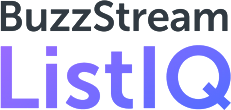
 End-to-end outreach workflow
End-to-end outreach workflow



 Check out the BuzzStream Podcast
Check out the BuzzStream Podcast

